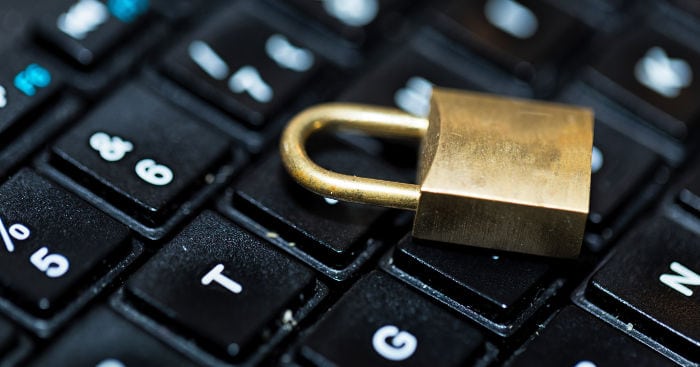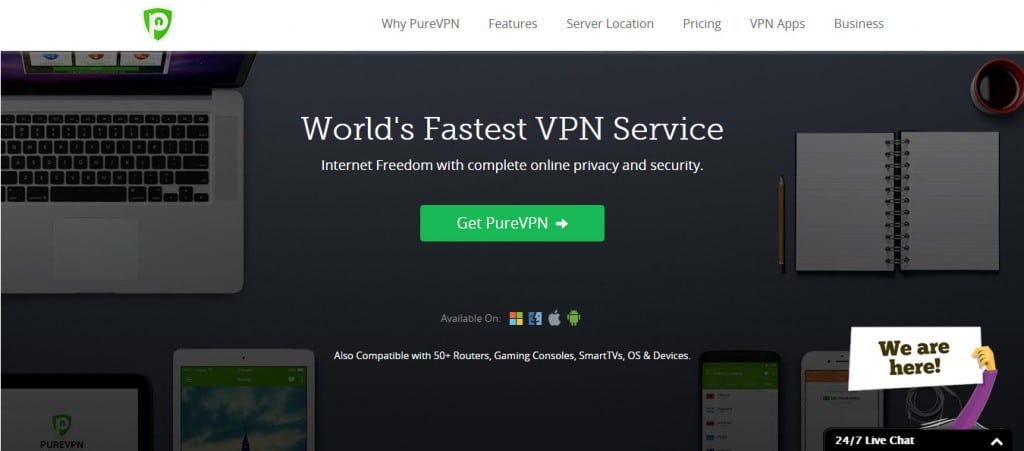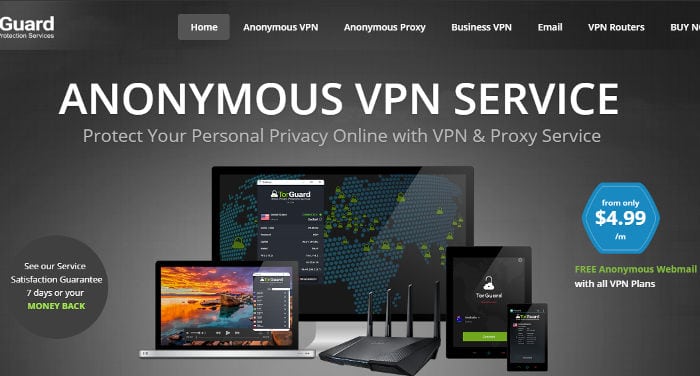
This article aims to explain in a simple and clear way what VPNs, proxies and Tor are, as well as the differences between them. The article is intended to be understandable for any person, and because of this, it may contain oversimplifications and opinions.
Currently, these three systems have three main uses:
- To avoid internet censorship: As you already know, there exist certain countries with restrictions on internet use. The most famous of them are China and Iran, although internet restrictions are present in many other countries, such as Thailand, Vietnam and Russia. For example, YouTube is blocked in at least 10 countries. While these three systems may allow you to avoid restrictions on certain web sites (such as Facebook, Twitter and YouTube), in practice, VPNs are the most reliable system for getting around restrictions to date.
- To unblock websites with geographic restrictions: Another common use for these systems is to unblock content which is geographically restricted, and mainly video content (such as television programs, series or podcasts). For example, they are used to watch series and movies on Netflix when you are in a country in which it does not exist or if you prefer to use the Netflix from another country. While a VPN, proxy or Tor can be used to unblock this content, currently only good VPN providers and certain proxies are able to offer browsing speeds compatible with streaming.
- To improve internet security: A lot of people use these systems to avoid having their banking or personal information robbed by third parties, especially when they connect via public networks (a risk that is getting exponentially larger). However, despite what people think, proxies and Tor do not improve internet security whatsoever (sometimes even the opposite). Only VPNs with good encryption protocols improve the security of your connection.
Important: Not all VPN services are the same. If you want to know what the best three VPN providers are in our opinion, click here.
What is a VPN?
A VPN or Virtual Private Network, to put it shortly, consists in connecting to a public network as if you were connected to a private network. In other words, it is a system that allows you to connect to a public network (for example, a free wifi network in an airport) as if you were connecting to your company’s computer. This stops you form being able to be located and greatly improves the security of your connection.
What does this mean? Mainly two things:
- Hiding your real IP address: The web pages you visit (or people who intercept your connection) will not know from where you are really connecting (IP address), but rather will think that you are connecting from the location of the server of your VPN provider.
- Encrypting your connection: If someone intercepts your connection, they will never know which web pages you are visiting, and more importantly, what data you are inputting in the web pages you visit. This is because your connection to the VPN server will be encrypted and as a result, the person who is spying on your connection will only be able to see encoded information, which will be unintelligible.
What is a proxy?
To put it very simply, a proxy is a computer that directs all of your connection through itself in such a way that it acts as an intermediary between the internet and your computer (or telephone). The result is that for practical purposes, it will look like you are connecting to the internet from the proxy (the computer that directs your connection) and not from your computer. There exist many different types of proxies, but they can generally be categorized into two types:
- HTTP Proxy Server: These are the most basic proxies and only allow you to direct the traffic of web pages (that is, sites that start with http:// or shttp://). These proxies are used to browse the web and not much more, and their ability to hide IP addresses is not very good. In addition, they have to be configured individually for each browser that you use (Google Chrome, Safari, Internet Explorer, Firefox, or whichever browser you are using).
- SOCKS Proxy Server: These proxies do not interpret your traffic, which allows you to filter all types of connections in addition to browsing, such as chats, emails, file downloads or torrents. The main problem is that they have to be configured for each way you want to use them (for example, to send emails).
Finally, there exist different types of proxies depending on the services they offer:
- Public Proxy Servers: The system is open to anyone who wants to use it and as a result, they tend to be very unstable and their connection is slow and often cuts out.
- Private Proxy Servers: The system is only open to registered users, which makes it more stable and reliable.
- Web Proxy Servers: These run in your browser and connect to a public HTTP proxy server. Because of this, they tend to be unstable and are easily blocked by many websites.
What is Tor?
Tor was created as a non-profit organization to help internet users maintain their anonymity. While the system is somewhat too complex to explain here, to put it simply, we can say that it works in a way similar to a proxy but with a particular difference: instead of directing traffic through only one server (or computer), it uses a network of volunteers, directing traffic through multiple servers that are constantly changing, making it difficult to determine the origin of the connection.
Obviously, while it is more difficult to trace than a proxy, this complex system makes browsing much slower.
To use it in the most simple way, you download the Tor browser or the Firefox add-on. However, using Tor involves certain risks, which I specify in the last section. I don’t recommend using it unless you know what it involves.
Comparison between VPNs, Tor and proxies
In this section I will compare the three services based on their most common uses:
Censorship
While theoretically, the three systems allow to avoid the blocking of web pages such as Facebook, Twitter and YouTube in countries such as China and Iran by hiding your real IP address, on a practical level, proxies are the lest effective. Proxies are without a doubt the least robust system and are normally unable to overcome internet restrictions.
When they are able to overcome these restrictions, their services are very unsatisfactory and are quickly identified by the government and blocked. While Tor is much more robust than a proxy, it works slowly and many governments are trying to ban it, which means that in addition to not ensuring that you will get around censorship, it is possible that you will be put into the line of sight of the government whose censorship you are trying to avoid.
For this use, a quality VPN normally offers the best services in terms of reliability and connection speed, although they are not infallible.
Geographic restrictions
The majority of people who use these systems to avoid geographic restrictions use them to view video content that is only available in one country, such as online television channels or platforms such as Netflix or Hulu. Because of this, it is necessary to have a system that offers good connection speeds.
While proxies should normally offer better services to this effect because they are not encrypted, in the majority of cases they are useless, as websites can easily detect the origin of the connection and as a result, block their content. In addition, many proxies offer slow and unstable connections due to the saturation or low quality of their servers.
To this effect, Tor offers much more stable connections which are difficult to trace, and because of this, it does not usually have problems avoiding geographic restrictions. However, Tor is relatively slow, which does not make it the best system for this type of use.
Finally, in my opinion, VPNs offer the best solution, as they combine a robust system for hiding the origin of your connection with speeds compatible with streaming. However, not all VPNs have the same services.
In fact, the majority of cheap or free VPNs offer bad connection speeds (similar to proxies), which makes choosing a good VPN crucial in being able to enjoy video content without restrictions.
Security
In general, this is the aspect that causes the most confusion. It is one thing to browse anonymously and another thing to have a secure connection. That is, making it hard for you to be identified while browsing (anonymity) is very different from preventing unauthorized third parties from viewing your use of the internet.
- Anonymity: While complete anonymity on the internet does not exist, Tor is clearly the system that makes it most difficult for you to be identified. Good VPNs are also a worthwhile alternative, but at the end of the day, VPN providers are required to keep a certain basic record of their users, and as a result, their users can be potentially identified. Finally, free proxies and VPNs generally offer no guarantees of anonymity. On the contrary, they often collect the personal and internet use information of their users to sell it to third parties.
- Security: Many people think that using a proxy or Tor on public networks (for example a hotspot, a hotel or an internet café) increases their browsing security (sometimes it is the opposite). The majority of proxies and Tor do not encrypt the content that leaves your computer. The only real way to increase your internet security is by using a VPN with good encryption protocols.
The risks of using a VPN
As I mentioned earlier, not all VPNs are the same, and not all companies offer you the same guarantees. So, be very careful when choosing a VPN. My recomendation is to avoid free VPNs or those that are offered at excessively low prices. Click here to learn more about the risks of using a VPN.
Finally, keep in mind that VPNs are designed to improve your internet security, but not to help you commit illegal or criminal activities. In the end, they are companies that are subject to the law in the country where their servers are located, and the government in question can request that they provide your data to them.
The risks of using proxy servers
While some proxies are run by legitimate companies and do not include hidden services, many articles warn of the numerous risks of using proxy servers. Many studies show that there are a large amount of proxies that work to collect your personal and browsing information (to sell it to third parties), install malware in your browser to show ads, as well as other serious things.
The risks of using Tor
While Tor as a system is theoretically the best system for obtaining a practically anonymous connection, on a practical level, it has several security and anonymity risks that cannot be omitted.
With respect to security, while Tor does not provide improved security on public networks, its greatest risk is regarding what are called “exit nodes,” which are the last computer or server that directs your traffic. The problem is that this “person” (who you don’t know) can easily see what you are doing on the internet and as a result, can do what they want with this information without you being able to ask them for explanations.
This weakness, as indicated by numerous articles, is being used by hackers to take advantage of the least protected users.
The other big risk of Tor, especially for people who want to avoid internet use restrictions in countries such as China, is that Tor has been widely used by political dissidents, journalists and even worse, by criminal organizations.
This is the reason why many governments have Tor in their sight and intend to identify and monitor all of its users. If you use Tor (especially if you are not an advanced user), instead of navigating anonymously, it is possible that you will end up earmarked by the government as a potential criminal, and as a result, everything you do on the internet will be analyzed.
To conclude, before using these services, be aware of the risks that they involve and study them well before making your decision.
Frequently asked questions
The reason is that Tor is slow and you also risk sparking the attention of government agencies, as Tor provides much more privacy and can therefore be used for illegal activities.
Photo Credits: ![]() Sicherheit by Oliver Henze
Sicherheit by Oliver Henze



